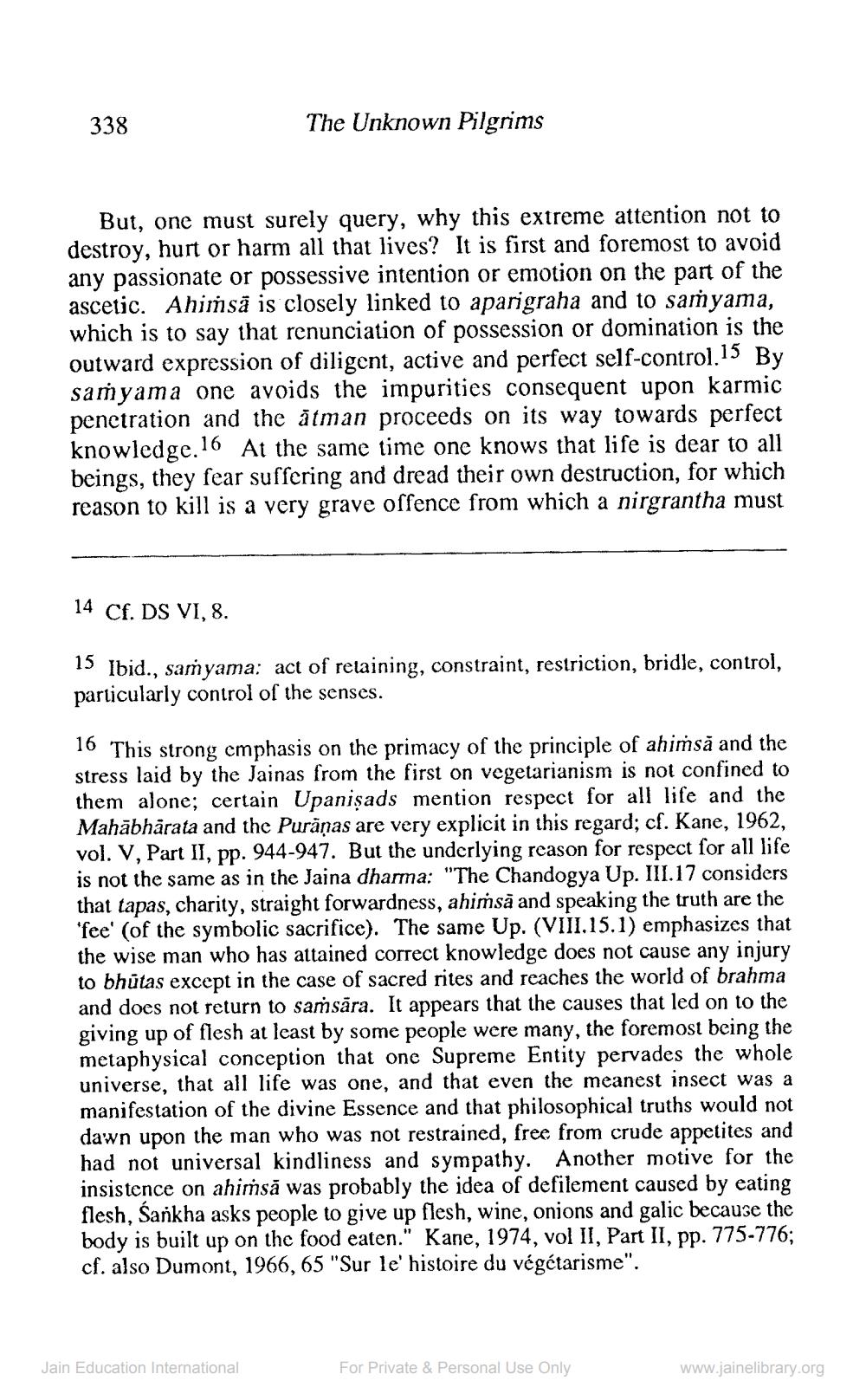________________
338
The Unknown Pilgrims
But, one must surely query, why this extreme attention not to destroy, hurt or harm all that lives? It is first and foremost to avoid any passionate or possessive intention or emotion on the part of the ascetic. Ahimsa is closely linked to aparigraha and to samyama, which is to say that renunciation of possession or domination is the outward expression of diligent, active and perfect self-control.15 By samyama one avoids the impurities consequent upon karmic penetration and the atman proceeds on its way towards perfect knowledge.16 At the same time one knows that life is dear to all beings, they fear suffering and dread their own destruction, for which reason to kill is a very grave offence from which a nirgrantha must
14 Cf. DS VI, 8.
15 Ibid., samyama: act of retaining, constraint, restriction, bridle, control, particularly control of the senses.
16 This strong emphasis on the primacy of the principle of ahimsa and the stress laid by the Jainas from the first on vegetarianism is not confined to them alone; certain Upanisads mention respect for all life and the Mahabharata and the Puranas are very explicit in this regard; cf. Kane, 1962, vol. V, Part II, pp. 944-947. But the underlying reason for respect for all life is not the same as in the Jaina dharma: "The Chandogya Up. III.17 considers that tapas, charity, straight forwardness, ahimsa and speaking the truth are the 'fee' (of the symbolic sacrifice). The same Up. (VIII.15.1) emphasizes that the wise man who has attained correct knowledge does not cause any injury to bhūtas except in the case of sacred rites and reaches the world of brahma and does not return to samsara. It appears that the causes that led on to the giving up of flesh at least by some people were many, the foremost being the metaphysical conception that one Supreme Entity pervades the whole universe, that all life was one, and that even the meanest insect was a manifestation of the divine Essence and that philosophical truths would not dawn upon the man who was not restrained, free from crude appetites and had not universal kindliness and sympathy. Another motive for the insistence on ahimsa was probably the idea of defilement caused by eating flesh, Śankha asks people to give up flesh, wine, onions and galic because the body is built up on the food eaten." Kane, 1974, vol II, Part II, pp. 775-776; cf. also Dumont, 1966, 65 "Sur le' histoire du végétarisme".
Jain Education International
For Private & Personal Use Only
www.jainelibrary.org




